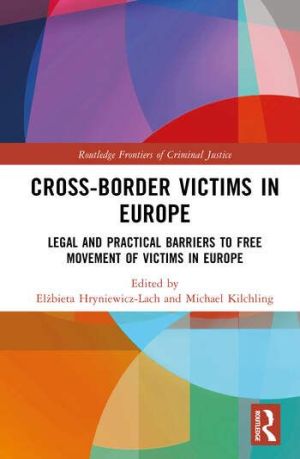
This book examines how the movement of individuals across European borders affects their ability to effectively exercise their rights as victims in criminal proceedings – and how to improve the most problematic issues in this area.
The European Convention on Human Rights and the EU Charter of Fundamental Rights, both guarantee an individual a freedom of movement understood, among others, as a freedom to leave any country, including one’s own. From a victim perspective, the most relevant aspect of free movement is the fact that the exercise of their freedom to move across the border does not result in a loss of the ability to effectively exercise the rights granted to a victim within the framework of criminal law: the right to be recognised as a victim, to make a formal complaint, to receive information concerning their case, to participate in a criminal proceedings and benefit from victim assistance, compensation and protection. The book presents the legal situation and factual challenges of cross-border victims, i.e., individuals victimised in a European state other than the state, where they habitually reside, including also migrant victims, based on the results of research conducted by experts in law and victimology in 10 European countries, presented in national and European perspective.
This edited collection will therefore appeal to students and scholars of migration studies, citizenship studies, victimology, and European law. It will also be of importance to legal practitioners and policymakers working in these fields.